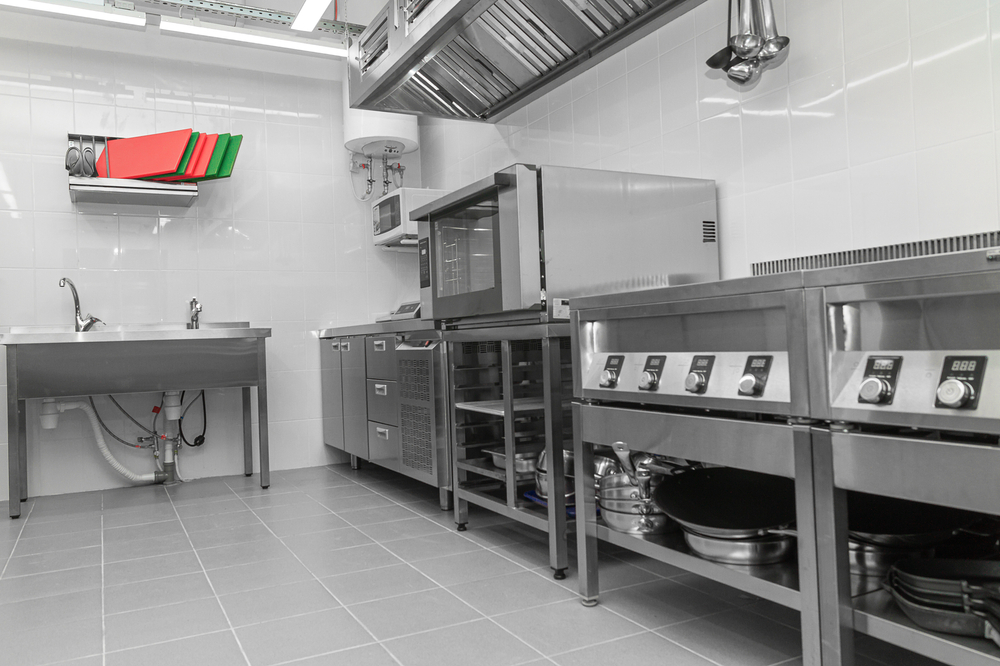Proper plumbing maintenance is a vital aspect of managing a commercial kitchen. Regular upkeep can prevent costly repairs and downtime, ensuring your establishment is compliant with health and safety regulations. This article provides comprehensive best practices to keep your commercial kitchen’s plumbing system running efficiently.
Regular Inspections
Routine plumbing inspections can catch potential issues early on, saving you from significant problems down the line. As part of your maintenance program, a commercial plumber should check for leaks, clogs, and signs of wear in pipes and fixtures. Sink replacement may be necessary in cases of significant wear and tear. The inspection should also include the drainage system, a crucial component often requiring professional drain service to prevent water backups and flooding.
Grease Trap Maintenance
Grease traps in commercial kitchens play a vital role in separating grease and other solids from wastewater before it enters the sewer system. These traps require regular cleaning and maintenance to prevent clogs, which can disrupt your kitchen’s smooth operation. Engaging professional services for thorough grease trap cleaning can be highly beneficial.
Drain Cleaning
Keeping drains clear and free from debris is paramount to maintaining your commercial kitchen’s plumbing. Implementing drain strainers can effectively catch food particles and solids. Moreover, refrain from pouring grease and oil down the drains, as this can lead to severe blockages. Instead, regular drain flushing should be performed by a professional drain service to keep the system clear.
Water Heater Maintenance
Water heaters play a vital role in kitchen operations. Regular maintenance, including kitchen stack flushing, is needed to remove sediment buildup and keep them running efficiently. You should set the water heater to an appropriate temperature to balance energy efficiency and safety, ensuring a consistent hot water supply.
Faucet and Fixture Care
Maintaining faucets and fixtures in optimal condition extends their lifespan and ensures efficient water usage. Regular cleaning and routine inspections can prevent leaks and other issues. Consider sink replacement for worn-out or inefficient units. Implementing low-flow faucets can help conserve water without compromising the kitchen’s operation.
Pipe Insulation
Insulating pipes in commercial kitchens offers several advantages. It helps prevent frozen pipes in cold weather, thus averting potential water damage. Furthermore, pipe insulation conserves energy and reduces heat loss, contributing to the kitchen’s overall energy efficiency.
Avoid Chemical Drain Cleaners
While an over-the-counter chemical drain cleaner may seem like a quick solution for clogged drains, it can damage your pipes. Instead, consider natural drain cleaners or professional drain services. Experienced commercial plumbers can effectively clear clogs without harming the system.
Educate Staff
Staff training on proper plumbing practices is crucial. Knowledgeable staff can maintain the plumbing system daily and promptly report any issues. By being vigilant, they can help avoid serious problems and expensive repairs.
Emergency Preparedness
An emergency plan for plumbing issues is crucial to managing unexpected situations effectively. Knowing the location of shut-off valves and how to use them is key to this plan. Having the contact information for emergency plumbing services readily available can ensure a swift response when needed.
Professional Plumbing Services
Hiring a licensed and experienced commercial plumber for maintenance and repairs adds tremendous value. A reliable plumbing company can provide ongoing services, like drain flushing and kitchen stack flushing, ensuring your system’s optimal operation. When choosing a service, consider their experience, reputation, and the range of services they offer.
In conclusion, maintaining your commercial kitchen’s plumbing system is vital for efficient, safe operation. Regular inspections, proactive maintenance, and staff education form the backbone of this endeavor. Always remember that a well-maintained plumbing system contributes significantly to your commercial kitchen’s overall success.

